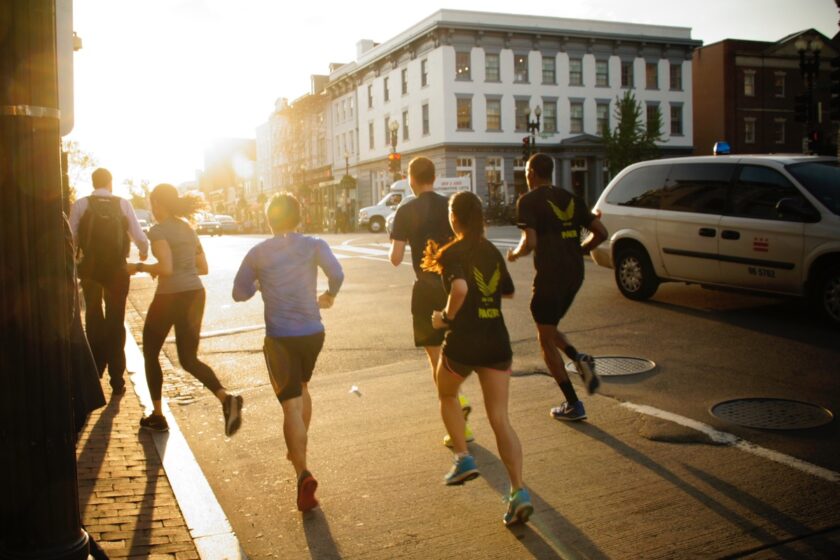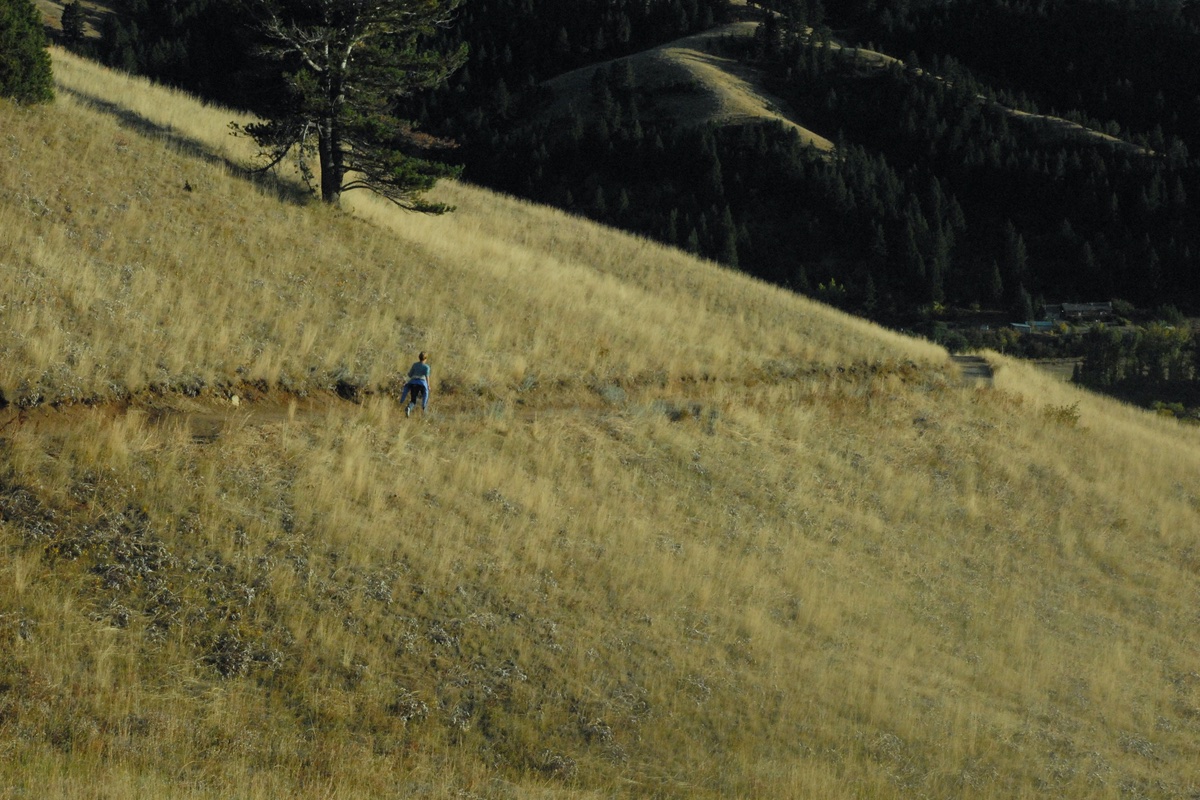I don’t want to run like this anymore. It’s not doing me any good. More than that: it’s jeopardizing my health. I’m jeopardizing my health. And my joy of running is at risk too. I owe this realization to a gadget, not my own insight. But let’s start from the beginning.
I’ve got something like a morning routine. It’s not the same every day, especially the order isn’t set, but it usually includes the same things. Making coffee, meditating, filling out my Whoop journal from the previous day. Then I check the Whoop app to see how I’m feeling. I know what you’re thinking. I should know that intuitively, by tuning in. But even though I consider myself intuitive in many ways, I’m also really good at ignoring my body’s signals. That’s where Whoop helps me. And again and again, on days when I least expect it, this little gadget on my wrist tells me I’m not well-rested. Quite the opposite, actually. And that I should take it easy.
Now, it can happen that on one of these days, I have a run scheduled in my training plan. Maybe a long run. Maybe a tough one. And then, I have this inner battle between my angel and devil. The angel on my left shoulder sweetly tells me to take it slow, while the devil on my right insists it’s all nonsense.
Looking at it rationally, I weigh the training plan, meant to guide me to my goal safely, against a gadget like Whoop, telling me about my actual performance. How well I’ve slept. Core details like resting heart rate or heartbeat variability. And in the end, the question is: stick to the plan and push through? Or listen to my body and take it easy?
Getting Annoyed With my Ambition
Lately, I’ve been skipping training sessions more often. Not just because vacation sometimes means more important things than running, but also because Whoop showed that my recovery was off. This got me thinking. After setbacks like Achilles tendon injuries, COVID, and breaks from running, I set a goal again. I’m looking at the Frankfurt Marathon in three months. Aiming for a personal best. Going the extra mile. Beating myself.
But the longer I’m here on vacation, enjoying beautiful trails, delicious food, trips with my wife, sauna, fresh air, peace and solitude, the sillier this plan seems. I even find myself getting annoyed with my ambition.
Maybe it’s time to rethink this whole running thing. Running has been more of a pain than pleasure lately, but I keep going. I have a goal. Frankfurt. Personal best time. That sums up the vicious cycle.
So, what if I flip the script? Instead of always aiming for the goal and shaping everything around it, how about focusing on the here and now? On what’s working right now? On what my body needs today or what feels good, and what would be fun for me today? And then just take it day by day, week by week, and see where this new approach leads me? Maybe it’d even mean saying goodbye to traditional road races, at least if you put the emphasis on the «races». Perhaps it’s time to pay more attention to the trails again. Cause what really gets me pumped about trails and trail competitions is that they shift things around, swapping target times for real experiences, tactics for courage and stamina, pace for the chill vibes of running.
Guilt-Free Choices And a Tool for Self-Reflection

It would be an approach to running similar to intuitive eating. Just as this concept emphasizes listening to natural hunger and satisfaction signals, intuitive running would pay attention to individual needs, feelings, and physical signs. It might involve tuning into the body to determine pace, distance, and intensity, finding joy in running itself, rejecting performance pressure and rigid training plans for a more flexible, enjoyable, and personal connection to running.
Like intuitive eating helps balance emotional needs through means other than food, intuitive running could serve as an expression of emotions, a tool for self-reflection, stress management, strengthening the mind-body connection, not solely focusing on speed, distance, or performance. It could also help prevent injuries, reduce overtraining or ignoring warning signals. And just as intuitive eating enhances food enjoyment by encouraging guilt-free choices, intuitive running would highlight relationships with surroundings and others. What would remain to be seen is whether I would still be able to nail those personal bests with this approach. Or, more significantly, whether that would even matter to me down the line.
And here I am, on vacation by a lake in Finland, gazing at the water and hills with the setting sun casting picturesque shadows, where I was planning to run tomorrow. A long run. It’s in the training plan. Only 12 weeks until Frankfurt. And as I write, the idea grows to add a component to my morning routine. After the coffee, meditation, and Whoop journal, I could align it with how rested I feel, how my muscles feel, what’s on my mind. And then decide what’s right for me. What sport. What intensity. Whether it’s sports at all, or just relaxation, stretching, or yoga.
The more I think about it, the more I like this idea of intuitive running. Maybe it’s time to make it happen. Starting tomorrow. After deleting my training plan.
